~~Derya, Isobel, Josh, Vivian, Zack worked together with the Open Future Institute Team to shape the new QUESTion curriculum. In this discussion they share their experience and thoughts on why it is important for young people to get engaged with a project like this and what they can get out of it… ~~
Isobel: We’ve all been involved in the QUESTion project and exploring this journey of purpose, and I was wondering what you guys think in terms of why we need this project, why now and what do young people get out of something like this.
Zach: With all this choice, with the ability to act on a number of different things and get involved in a number of different things, it’s really important to have some type of focus. As what we’re doing, we provide this forum for people to come together and talk about it and know, ‘Hey, I’m not the only one struggling to find my place and to find meaning in things’, and so it’s really important for young people not having a sense of direction.
Vivian: Another important aspect of why this project is very necessary is that it encourages students to look beyond themselves and see that we are interconnected people in an interconnected world, and given what has happened before with all these wars and social inequality, students need a better sense of caring for others and thinking about their purpose in life and their choices in life and how to make their decisions because if we don’t really think about these things and have the space to reflect on these things, things won’t change.
Josh: Also, when we come together, we share really deep feelings, or we share visions of a better world together, it really enlightens our perspective of what the world is because if we’re disconnected, and all we see is the news and the wars and the inequalities going on, we might completely apply that image to life.
Derya: There’s this pressure of providing a better life for ourselves, using it as a means to a better future. So, sometimes, we can view our education just in terms of outcome. ‘Okay, I’m going to college to get a degree,’ but we don’t think about why we’re there, learning for learning’s sake. So, the project really helps us to explore deeper into why we’re getting a degree, why it’s so important to get a degree if our parents didn’t have a degree, why that ‘better life’ is so important for us and thinking about how it can also help us become better people.
Josh: Empowerment is a huge part of this project. It’s not just that we feel this huge power to do things and to change things. It is part of it when you can realize aspects of yourself and you can reflect on your position as a person. When we come together to share our passion, to share our visions, we share what we believe, what we desire, what we want, we can see the passion in each other to do this. It definitely is inspirational, it is empowering as a group of students, a group of social change agents to see that in another person, to really sense that, to share aspects of your life in that way. It is empowering, it is.
Derya: In terms of “why now,” there’s this big pressure currently going on in terms of social media especially to build a personal brand. It’s great to find who you are, but how do I do that? How do I do it while I’m still changing, I’m becoming a new person? Especially now, with this big pressure to become an expert on something so that we can get jobs and create opportunities for ourselves, it’s really hard to be like, ‘I don’t know who I am, my self is constantly evolving, or that I might change.’ So, there is a pressure to create yourself as a static entity, as an expert on one topic, and it doesn’t really allow for you to change your passions or change your ideas or change your lifestyle.
Josh: It seems as though the cycle or the way we do things as a professional is to define yourself and sticking to that mold as hard as you can because it sustains you. And, it’s viable, and it does sustain us, but we can see that it doesn’t always make us happy to be stuck in a mold that we put around ourselves. It’s definitely nice to hear that we all share this process, and we all know t’s okay to share it, it’s okay to not know.
Zach: But, if you can ask, ‘who am I right now?’ that will at least open the door for the direction you’re going to take, the direction, no fixed outcomes. Be open to yourself and who you are changing, but know that right now, this is who you are, and this is where you’re going to go because of that.
Vivian: What really inspires me about this project is that it provides a foundation for both inner and both social change. So, on one aspect, you get to learn more about yourself, and you engage in self-discovery, given the reasons that we discussed earlier. On another aspect, it’s really important for social change because we see ourselves as part of a bigger picture, as part of the world, develop more compassion for other people and get a better sense of responsibility for our actions and how one small decision can really impact people in a lot of ways that we don’t know. When you combine both personal growth and self-discovery with the knowledge that you learn, the things you learn in class, it becomes super powerful and transformative because it not only can change yourself, it can change other people. (…) A lot of times when we think about our future, we feel a lot of fear because you can’t really control the future. For the most part, it’s very common for people to want to hang on to that sense of control. It’s a delicate balance between letting go of that control and seeing what emerges.
Zach: It’s like when you go to see a movie, and you know the end of the movie, it’s really not that fun to watch anymore. Maybe that’s a great movie, but it’s not the end of a movie but it’s watching it and going through the whole movie that’s exciting. If we could put a little bit of that movie mentality into our own lives, then we’d have a little invigoration, kind of embrace the unknown instead of being so scared of it.
Isobel: Can we maybe speak a little about the concept of love because I’ve heard a lot of you say that–of course, it’s very important, but I want to hear from you guys why you put that as an overarching theme.
Derya: I firmly believe that it’s the foundation and the goal of the project. In the space that we have created for students to engage with these questions, there needs to be a space for love as well. It needs to be a safe space, and one of the ways that that happens is through love. When you’re sharing your vulnerabilities, it’s impossible to not feel love for another person or not feel connected with them in some way. That’s a very loving thing for you to do, to just open yourself and to be vulnerable and to share aspects of yourself. But, then, also, when the other students are engaging with these questions and talking about these things, there’s a level of love that’s also being communicated in the way that they are speaking to each other because they’re all striving to meet the other person. But, it is also the goal of the project and not necessarily love for another person but, most importantly, it’s the goal to love yourself and to use choice, purpose, fearlessness, interconnectedness, and the bigger picture to have a deeper love for yourself and be confident in yourself and feel empowered through that. (…) And, it’s only through developing love for yourself that you’re able to open that up and love other people.
Josh: When I experienced love in my life, it’s always associated with beauty. You can find life to be beautiful if looked at in a purposeful way, if seeing your life having this deeper meaning and direction. It gives your actions and your day this sense of beauty, and I feel love towards life in that way. I feel like when we don’t have these ideas discussed, when it’s not in our awareness, life can become dull, become two-dimensional. It becomes devoid of beauty, it stops being this mysterious adventure that we go on as humans.
Zach: Everything that made you you makes them, and when you recognize that, and you give them basic human love, that’s contagious, and that’s the distinction that people should start making so that they can start embracing empathy and embracing each other, getting past ‘I have to love you, like love love you.’
Isobel: Going with that theme, I see we’ve talked a lot about happiness through all of these pillars. Happiness connects with choice, it connects with fearlessness. I’m wondering if there’s a big connection–oftentimes, the two go hand in hand, love and happiness, I’m just wondering on the perspective of, in the context of this project particularly, why do we keep bringing up happiness. Does anyone want to speak to happiness in general? I know you talk a lot about happiness.
Vivian: The whole project is about happiness. Why do we want to change culture? Why do we want a better future for everyone? Why are we on this inner journey? Why do we want social change? At the bottom of it, it does go with love. We want to be happy. Other people want to be happy. Recognizing that–I didn’t really define what happiness is, but there is this aspect of wanting people to be happy, wanting to be happy yourself, and just wanting a better future for everyone.
Derya: I remember we had talked about differentiating happiness, so there’s a happiness you get when you get a new iphone or a new pair of shoes or a really cute top, but that’s a fleeing happiness because the next iphone comes out, the iphone 6 is coming out soon or something like that. But, we were also talking about a lasting happiness or an underlying happiness where you might not like your job or you might not like the conditions that you are in, kind of like what you were touching on Josh, but you know the purpose behind it or you know you’re working every day to support your family so that you’re family can have a better life. So, that’s the type of happiness, not necessarily the iphone happiness but this lasting happiness that this project hopefully emerges, and that really comes from the love for yourself that you hopefully develop. When you have a love for yourself, not a narcissistic love for yourself, just an appreciation that you can be vulnerable and just a confidence in yourself.

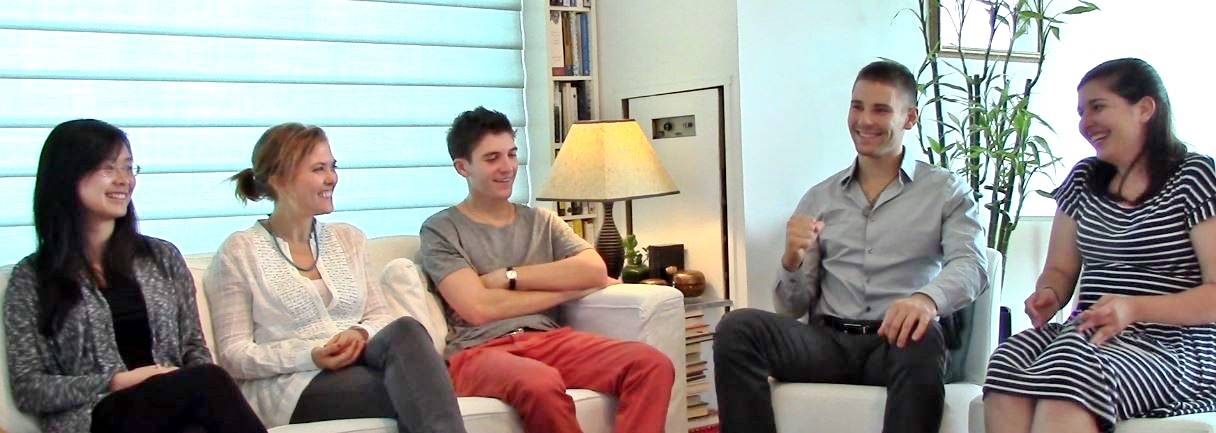
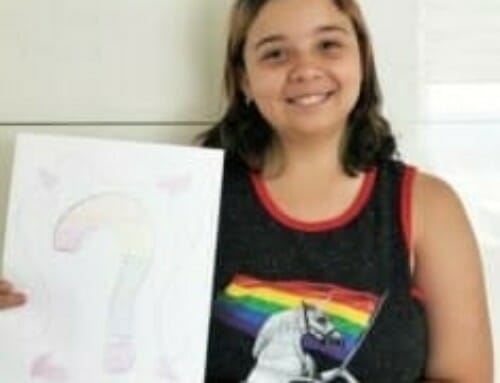
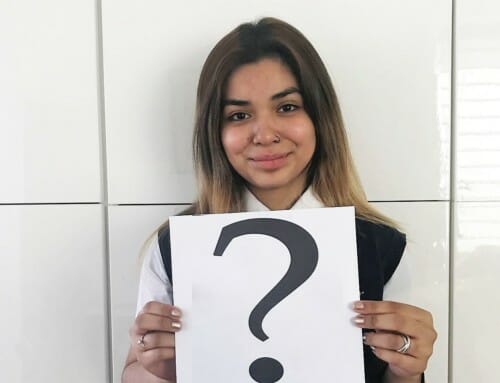
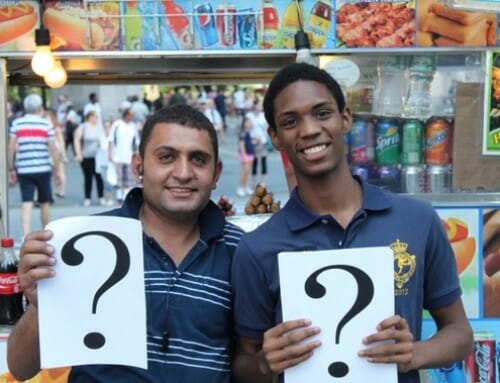
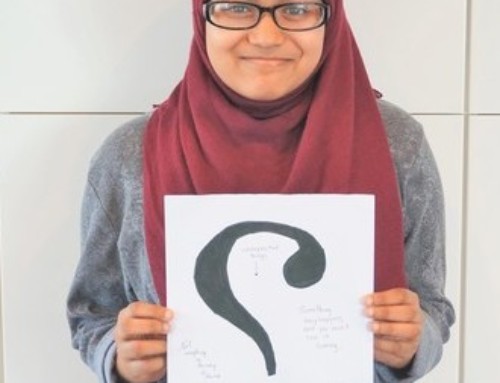
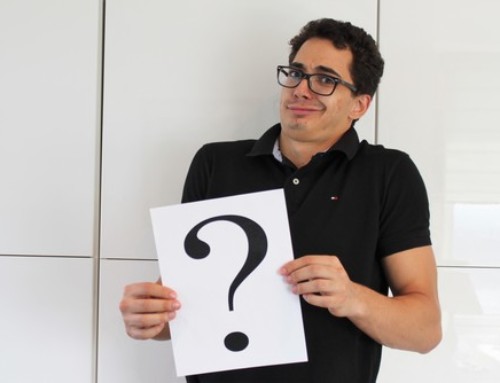
Leave A Comment